In true Adamah fashion, we’ve been scrounging up free stuff this fall. A local hay farmer found himself with a whole section of his barn full of broken bales – difficult to move, not very useful, and in the way. Across town on Beebe Hill, we have 6,000 cloves of garlic (planted by alumni during the reunion) in need of mulch, a compost yard that is ever-hungry for dry organic material, and a few empty beds that are in need of erosion-preventing cover after late fall harvests left them bare. Enter: the enthusiastic, pitch fork wielding, pickup truck loading, hay slinging, professional schleppers of Fall Adamah 2015! We got about ten truck loads of free hay and Bill got his barn cleaned out, plus a few jars of the best pickles in the world. It was a shidduch between vegetable growers and hay farmers and a case of turning one farmer’s trash into another’s treasure. But it was also something else. It was a regenerative act. One way to look at farming is as the practice of moving carbon around. A plant takes carbon dioxide from the atmosphere, creates its’ body with the carbon, and then we eat the plant, […]
Topic: Adamah
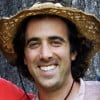
Reflections on 12 Years of the Adamah Fellowship
When Adam Berman and I started the Adamah Fellowship in 2003, we had a handful of young people, a garden no bigger than the average suburban backyard, and an assortment of classes, programs and half-formed ideas we put together from our years at Teva and Camp Tawonga, guiding wilderness trips, and teaching community college. There were no goats, no pickles, no Adamah house and no final presentations called “Speak your truth.” The Jewish Food Movement did not yet exist, and there was essentially one destination – Isabella Freedman – for young Jews who wanted to combine their passion for Judaism and environmentalism. Fast forward 12 years: Our 10-acre farm production goals are carefully planned, our morning prayer services are more carefully rooted in the tradition, our new pickle labels are made of a low-impact calcium paper, our orchards are bearing fruit, and the ways we speak about pluralistic community are more nuanced. We have a CSA and we donate food. We have moved out of the risky floodplain that was the original sadeh, and built the resilient and diverse Kaplan Family Farm on Beebe Hill. Our farm and all our products are certified organic. The number of JOFFEE programs we […]
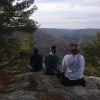
Where Are They Now?
Adamah Alumni Updates Josh Lichtman (Summer 2005) lives in New Orleans, has two young children, and is working on a Masters degree in urban planning. Steve Sherman and Glenn Katz (’11-’13) are working at a dairy in Tuscany for the second half of the Shmita year. Rachel Ackoff (Summer 2011) is working as a Senior Organizer at American Jewish World Service to mobilize the American Jewish community and other supporters of human rights to end violence against women and LGBT people globally. Tova Boehm (Summer 2006) owns and operates Short Winter Soups, a soup subscription business delivering locally grounded, inspired soups on a weekly basis in central North Carolina. (Rabbi) Adina Allen (Fall 2005), her husband Jeff Kasowitz and their little one Remy Ner are thrilled to have recently moved back to the Bay Area where they are launching a new Jewish learning and creative arts organization called The Jewish Studio Project. Jacob Perlman (Summer 2006) is in a masters program for occupational therapy in Minneapolis. Laura Held (Summer 2009) moved to Rochester, NY, to work at Foodlink as an Eat Smart New York (ESNY) Community Nutrition Educator. Emma Stuhl (Fall 2011) is getting her masters at the University of […]
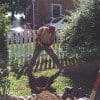
Adamah Alumni Spotlight: Ahron Lerman, Fall 2006
It’s been a surprisingly long eight and a half years since I did Adamah in the fall of 2006. I was just 22 then, and had recently returned from a stint trading farm work for room & board as a WWOOFer in Kealakekua, HI. It occurred to me then that Judaism and natural cycles shared something more in common than I had been led to believe, and it was on that conviction that I applied to Adamah. Those three months spent ankle-deep in compost and soul-deep in community helped shape the mindset and language with which I’ve come to my current work as an Urban Forester with the Massachusetts Department of Conservation & Recreation’s Greening the Gateway Cities program in Holyoke, MA. As an urban forester, my job can be delightfully simple: plant trees. On the other hand, there is something profoundly unsettling about work whose success is ultimately based on maturity measured in decades. I approach work each day (sometimes humming an Avodat Lev melody) carefully balancing the attitude that those truths bring about. Besides its everlasting melodies, I feel Adamah’s most meaningful impacts when I go through the daily routines that comprise my life. I learned at Adamah […]
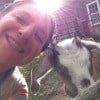
Transformation and Challenge
by Rachel Cohn, Adamah fellow, Fall 2014 Three months at Adamah has convinced me of the tangible realness of both transformation and its daily challenges. Judaism here is so rich and so vibrant and still full of the contradictions and choices we face outside of this loving intentional community. Sometimes we won’t get along. We don’t always ask each other the right questions to show that we care. Sometimes we don’t have the words to explain the pain we carry with us or to ask for the right wells of wisdom in our tradition that can help us heal. Our communities still aren’t enough to feed everyone’s souls, to get it right, to make peace in a real way, to help us each see the light of god in each other. There is so much here that is alive in our spiritual practice, and still – we need to do more. This simultaneously breaks my heart and makes me realize that I have to try anyway, to bring what I can amidst the brokenness, because what else is there to do? Maybe this is the process of becoming more ourselves: this also happens every day. Sometimes it means openly sobbing […]
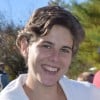
Abundance on Less Land
Last year at this time, we stared out beyond the sinking candles of our menorahs with eyes as glazed as jelly donuts. We had spent the previous ten winters looking ahead to a farming season of expansion. Each year from our humble garden beginnings in 2003 we had grown to our peak in 2013 with 6 acres of vegetables, 6 acres of pasture for our goat dairy , and a 1/2 acre of maturing berries and orchards. This winter, however, millions of drowned vegetable plants from recent flooding in the Sadeh haunted our memories and we knew that the risk of planting the entire field was too great, no matter how gorgeous the soil. Between our reliable land on Beebe Hill, the small bit of the Sadeh that we decided to make a go of, and a new patch lent to us by neighbors we would have only three and a half acres to work with in 2014. We were in a pickle! There were just as many Brooklyn potlucks in need of sauerkraut and Hartford CSA members’ shabbat tables in need of broccoli. More people than ever were signed up for Isabella Freedman’s retreats, most of them expecting our […]
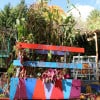
Because Sometimes it Rains on Your Sukkah
by Sarah Chandler Geshem Be’ito (Acceptance of Rain in Its Time) The following essay will be published in the forthcoming book of teachings “Good Noticing” published by the Institute for Jewish Spirituality. The rhythms of the Jewish calendar may not coincide with your particular climate. At times, our traditional rituals may range from the impractical to the impossible. For example, in the Northern Hemisphere, calling upon light in the darkness of Chanukah in Kislev/December always resonates, but singing about blossoming trees in Shevat/January may not make sense. How can we stay true to our tradition when the weather doesn’t cooperate? And as mindfulness practitioners, how might we elevate the news of undesirable weather? Those of us who live in the Northeastern United States are usually blessed with bountiful precipitation year-round. Furthermore, our religion is no longer based on the careful balance between following God’s laws and receiving in return enough rain for our crops to survive. The Reform movement even removed the second paragraph of the Shema from prayer books to make the bold statement: we are modern Jews—we do not believe that we can influence God to change the weather by keeping the commandments of our tradition. Recent evidence […]
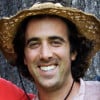
Getting Credit for Adamah
For the past ten years, Adamah has provided powerful learning experiences that have transformed the lives of more than 300 young Jews. Adamah is, in its focus and its impact, small-scale and intense: a small leadership training program that invests three months in the lives of 12-15 young adults at a time. We are not a yeshiva, university, or certified training program for a specialized field, though our Adamahniks learn much that one might learn at a yeshiva, a university, or a farm. Adamah is a time for learning, connection, and reflection. (Our field has been flooded twice in the last three years: so what does it mean to beat willow branches against the earth as part of a bring-on-the-rains Hoshanah Rabah ritual?). Their souls filled up, our alumni go off in 18 different directions to sow the seeds of their experience. Click here to learn more about what Adamah alumni are up to. We, the Adamah staff, are also fed by the work we do in the fields, in the hearts and minds around us, and in the ever-widening circle of our community. We believe in the ecological, educational, and religious import of our work. Up to this point, […]



